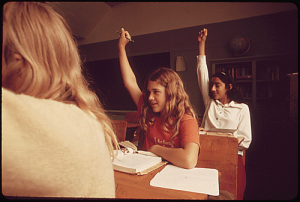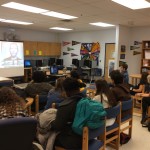The recent controversy over the closing of schools in Virginia’s Augusta County over a world history lesson about Islam reminds us why it is so important to teach about religion today.
Stephen Prothero, the religious scholar and professor, argues that a basic understanding of world religions is a matter of “urgent citizenship.'”
He notes, for example, that we all need some Biblical literacy because the two American political parties often speak the language of Christianity. Likewise, he believes that students need to understand other religions so that they can better understand important events like the recent election in India or the war between Gaza and Israel.
Jeffrey Kripal, another religious scholar and professor, agrees with Prothero, suggesting that offering world religion courses in public schools could have “a transformative effect on public life.”
Prothero and Kripal were guests on Maureen Fiedler’s radio show, Interfaith Voices , in July 2014.
Stephen Prothero is a professor at Boston University and the author of God is not One and Jefferey Kripal, a professor at Rice University, recently released a new textbook called “Comparing Religions: Coming to Terms.”
Religious scholars are not the only ones arguing for world religions classes in public schools. New York Times columnist, Nicholas Kristof, made a similar argument in a column two years ago. “How can one understand Afghanistan without some knowledge of Islam?” Or, says Kristof, “How can one understand America without any intellectual curiosity about Evangelicals?”
Here’s a link to the radio broadcast. And here’s a link to a story from the Desert News called “10 Reasons why religion Belongs in Schools.”
And just this year, Linda K. Wertheimer, released a new book called Faith Ed in which she outlines many of the pitfalls teachers face when teaching about religion. In a recent column for the Washington Post, she notes that “teaching about religion is complicated. With lots of gray areas.”
Nonetheless, it’s an important job especially because of what Dr. Charles Haynes calls a current climate of “fear and loathing.”













